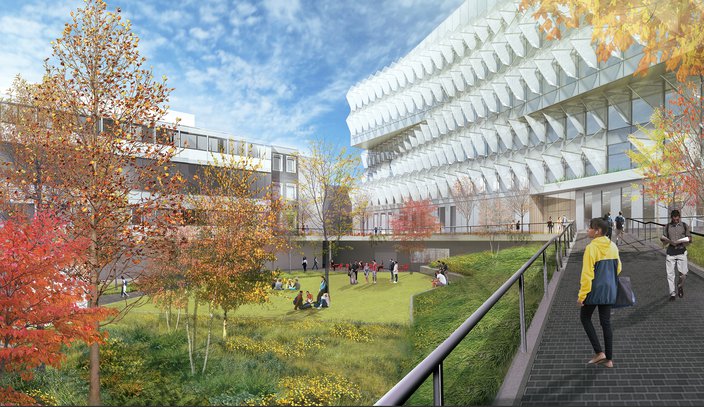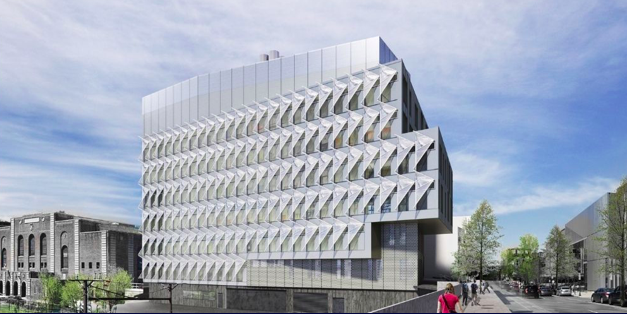
November 20, 2020
 Source/Behnisch Architekten
Source/Behnisch Architekten
The Vagelos Laboratory for Energy Science and Technology is planned at 3200 Walnut St. in West Philadelphia.
The University of Pennsylvania Board of Trustees has approved the design for a $173 million energy research lab in West Philadelphia, creating a home for interdisciplinary work advancing sustainability.
The project, designed by German firm Behnisch Architekten, will be named after Penn alumnus P. Roy Vagelos and his wife, Diana T. Vagelos, who led the way in gifts that totaled more than $70 million to support the initiative.
Situated at 3200 Walnut St., the Vagelos Laboratory for Energy Science and Technology will provide 110,000 square feet in laboratory space across seven floors. It will house the Vagelos Institute for Energy Science and the Vagelos Integrated Program in Energy Research, an undergraduate dual degree program run jointly by Arts & Sciences and Engineering.
Facilities in the planned building will include wet chemistry research labs and optics research labs, as well as collaborative spaces, offices and a landscaped courtyard.
The building's energy efficient design features shading devices on its eastern and western facades, cutting off solar angles to amplify sunlight and reduce glare. The triangular elements on the western facade will preserve views of the Palestra to the south.
Construction on the project is expected to begin in March 2022, with a completion date anticipated in fall 2024.
 Source/Behnisch Architekten
Source/Behnisch Architekten Source/Behnisch Architekten
Source/Behnisch Architekten